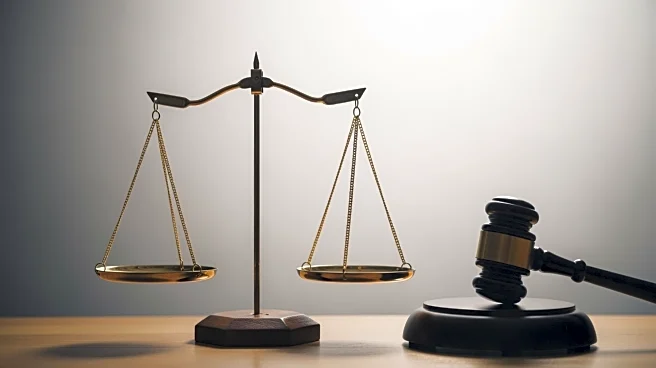What's Happening?
Justice Brett Kavanaugh is facing calls for recusal from a school prayer case due to his past involvement in a similar case over 25 years ago. Critics argue that his previous filing of an amicus brief
in a related case should disqualify him from participating in the current proceedings. However, historical precedents set by Justices Thurgood Marshall and Ruth Bader Ginsburg, who also had extensive advocacy backgrounds before joining the Supreme Court, suggest that such past involvement does not necessitate recusal. The case in question, Cambridge Christian v. FHSAA, involves the rights of religious speech, specifically prayer over a loudspeaker, and is being represented by the First Liberty Institute.
Why It's Important?
The debate over Justice Kavanaugh's potential recusal highlights the broader issue of how past advocacy work by Supreme Court justices is perceived in relation to their current judicial responsibilities. The outcome of this case could have significant implications for religious freedom and the interpretation of the First Amendment in the United States. If Kavanaugh were to recuse himself, it might set a precedent affecting future cases where justices have prior involvement in similar issues. This situation underscores the ongoing tension between personal history and judicial impartiality, which is crucial for maintaining public trust in the judiciary.
What's Next?
The Supreme Court is expected to proceed with the case, and Justice Kavanaugh's participation will likely continue unless further developments arise. The decision in Cambridge Christian v. FHSAA could influence future cases involving religious expression and the extent to which it is protected under the Constitution. Stakeholders, including religious organizations and civil liberties groups, will be closely monitoring the proceedings and potential outcomes.
Beyond the Headlines
This situation raises questions about the ethical considerations of judicial recusal and the balance between a justice's past experiences and their current role. It also reflects on the diversity of thought and background that justices bring to the Supreme Court, which can enrich the deliberative process and contribute to more nuanced legal interpretations.










